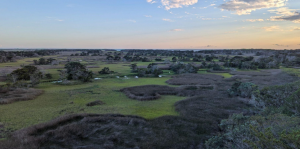
Increasing communities’ capacity to adapt to climate change can take many forms–this webinar features two presentations that relate to increasing coastal adaptive capacity.
The first, funded by AdSci, will provide an overview of how communities are working to increase their coastal adaptive capacity and community resilience to sea level rise through workshops and vulnerability assessments that identify potential adaptation pathways, funding opportunities, and data needs.
The second project featured will be from the West CAP team, the California-Nevada Climate Adaptation Program, highlighting their approach to providing technical assistance and integrating regional data and projections for sea level rise, coastal storm flooding, and beach erosion. This work aims to assist with developing adaptation pathways and strategies, including dunes as NbS, and co-produces and integrates climate, social science research, and Indigenous stewardship to support the advancement of effective and equitable sea-level rise adaptation planning with several collaborators across Southern California.
Register here
More information: Event webpage
This webinar is part of Climate and Societal Interactions Division Nature-Based Solutions Webinar Series, organized by the NOAA OAR’s Climate Program Office (USA).
This five-part webinar series features projects funded by the Climate and Societal Interactions (CSI) Division’s Adaptation Sciences (AdSci) and Climate Adaptation Partnerships (CAP) programs focused on the research and application of nature-based solutions (NbS), which are actions to protect, sustainably manage, or restore natural or modified ecosystems to address societal challenges, simultaneously providing benefits for people and the environment.
CSI invests in research networks that connect and align cutting-edge science with the most urgent needs of stakeholders. As projects are rooted in community needs, NbS work funded through AdSci and CAP varies and includes topics ranging from identifying trade-offs and co-benefits of NbS, to informing decision support and community planning, as well as evaluation of projects once implemented.
